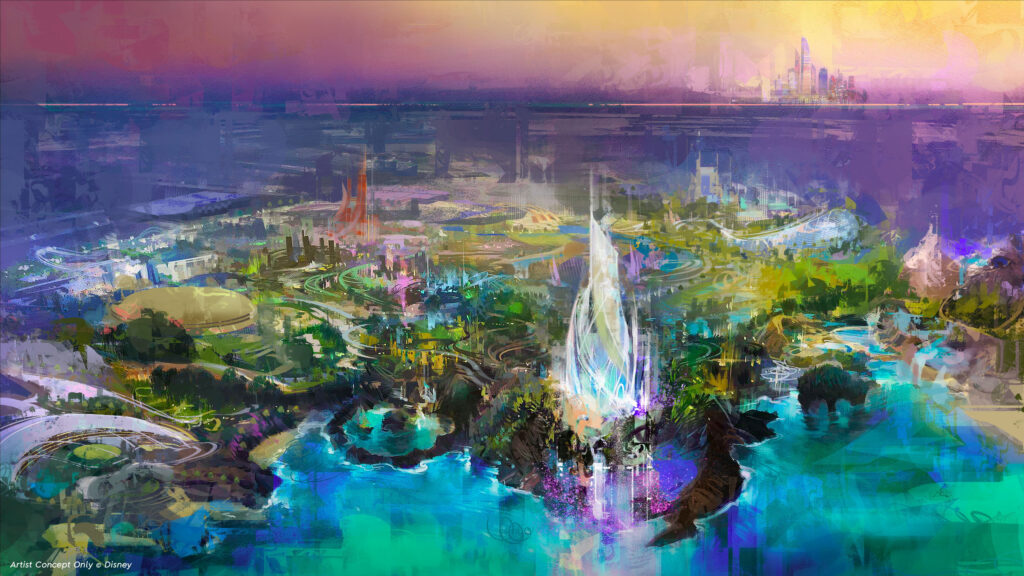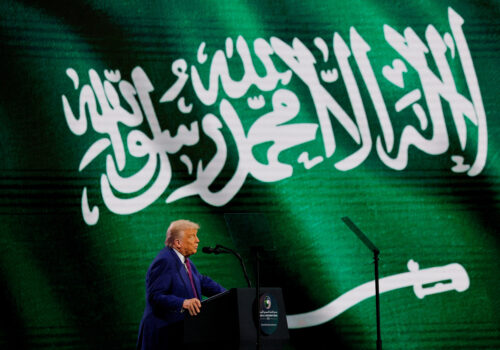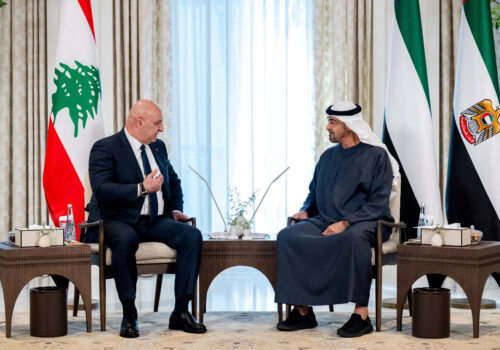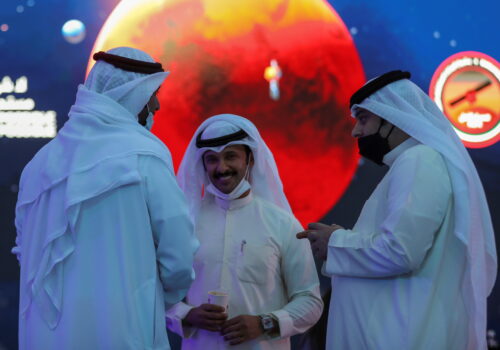Mickey goes to the Gulf: The UAE’s wish upon a soft power star
In a historic move that blends fantasy with foreign policy, the Walt Disney Company has announced its first theme park in the Middle East: Disneyland Abu Dhabi.
The park is set to be developed with Abu Dhabi-based Miral on Yas Island. It will be Disney’s seventh global resort, its first new resort in over fifteen years, and its most technologically advanced. Positioned within a four-hour flight of one-third of the world’s population, including markets in South Asia, Africa, and the Middle East, the park represents more than a commercial expansion—this is no simple tale of castles, rides, and performances.
As Disney CEO Robert A. Iger noted, the park will be “authentically Disney and distinctly Emirati”.
Disneyland Abu Dhabi is best understood as a strategic milestone in the United Arab Emirates’ soft power playbook: a carefully choreographed effort to rebrand the country’s global image and elevate its influence through culture, education, and international partnerships, rather than through coercive means. The UAE seeks to downplay its reputation as “Little Sparta,” known for throwing its weight around in the region in places like Yemen, where the UAE’s military role is blamed for heightening divisions in that country and prolonging the civil war. It also signals deepening ties with the United States, projecting trust amid shifting regional alliances.
Soft power by design
The concept of “soft power”, coined by political scientist Joseph Nye, refers to a nation’s ability to influence others through attraction rather than coercion. It’s about shaping preferences by “winning hearts and minds”. In the twenty-first century, culture, branding, and narrative have become as critical to international influence as military assets or economic might.
The UAE was one of the first Gulf countries to recognize this shift and institutionalize it. In 2017, it launched a national Soft Power Strategy aimed at enhancing the country’s reputation and extending its influence overseas. The strategy outlined a comprehensive approach, leveraging economic success, cultural heritage, humanitarian aid, and a commitment to tolerance to construct an appealing and recognizable national brand.
“Our goal is to engrain the UAE’s position in the world, and in people’s hearts”, explained H.H. Sheikh Mansour bin Zayed at the strategy’s unveiling.
Few initiatives embody this strategy as vividly as Disneyland Abu Dhabi.
The UAE’s leadership sees cultural infrastructure not merely as a tourism booster but as a pillar of national soft power. Hosting a Disney park sends a clear message: The UAE is safe, modern, and family-friendly, trusted enough to house one of the world’s most iconic entertainment institutions.
This blending of Disney magic with local Emirati culture speaks to the UAE’s strategic intent to localize Western symbols of culture while showcasing its own heritage. The location is no accident either: Yas Island is already home to big-name theme parks: Warner Bros. World, Ferrari World, and SeaWorld Abu Dhabi.
Beyond oil: A new national brand
Behind the soft power lies a very concrete strategic imperative: economic diversification. Like Saudi Arabia and Qatar, the UAE faces a future in which oil revenues alone can no longer sustain national growth. However, it has moved earlier and more decisively in its effort to transition from a hydrocarbon economy to one based on knowledge and services.
Expanding the leisure and tourism sectors is central to that vision. These sectors attract foreign income, create jobs, and strengthen non-oil sectors. The UAE has identified tourism and the creative economy as key pillars for a sustainable future, and Disneyland ticks all those boxes.

These projects also have a domestic dimension as instruments of legitimacy. For the Emirati leadership, ventures like Disneyland help reinforce a social contract at home: the ruling family delivers ever-greater prosperity, pride, and global recognition, and in return, the public acquiesces to their unelected governance.
In that sense, Disneyland is not just an economic asset, but a tool of statecraft.
Building a cultural hub: From Louvre to Disneyland
Over the past decade, the UAE has transformed a once-empty stretch of sand into a “branded entertainment Mecca”. Disneyland Abu Dhabi is the latest addition to a growing portfolio of landmarks that position the country as a global hub for arts, dialogue, and innovation.
The 2017 opening of the Louvre Abu Dhabi, the first Louvre outside France, marked a milestone in cultural diplomacy, made possible by Emirati funding and a landmark agreement with Paris. Nearby, the Guggenheim Abu Dhabi, set to be the largest of its kind, is under construction, further anchoring Saadiyat Island’s status as a beacon of global art tourism.
SIGN UP FOR THIS WEEK IN THE MIDEAST NEWSLETTER
The UAE has also positioned itself as a crossroads of religious and cultural dialogue. In 2019, during the country’s “Year of Tolerance”, Abu Dhabi hosted Pope Francis for a historic mass. In 2023, it inaugurated the Abrahamic Family House, a single complex housing a mosque, church, and synagogue. Dubai’s Expo 2020, which drew over twenty-four million visits and brought together 192 countries under the theme “Connecting Minds, Creating the Future”, further reinforced the UAE’s brand as a meeting point of civilizations and ideas.
These projects also carry implicit diplomatic weight. Hosting globally recognized institutions strengthens bilateral relationships and signals strategic alignment. The French government’s support for the Louvre Abu Dhabi and the US presence through NYU Abu Dhabi endorses the Emirati vision and its capacity to serve as a trusted cultural and knowledge partner.
US-Emirati relations: trust and verify
The arrival of Disneyland in Abu Dhabi carries symbolic weight for US-UAE relations. For decades, the UAE has been one of Washington’s closest regional partners, hosting US troops and welcoming major US investments.
Yet the relationship has faced moments of strain. In 2021, former US President Joe Biden’s administration paused a $23 billion arms deal, including F-35 fighter jets, citing concerns about the UAE’s role in Yemen and its growing ties with China, particularly through Huawei’s 5G technology. In response, Emirati officials questioned US reliability and reportedly explored Chinese defense alternatives.
Still, both countries have taken steps to reaffirm trust. In September 2024, Biden designated the UAE a “Major Defense Partner”, a title previously granted only to India. The move signaled renewed strategic alignment and paved the way for closer cooperation on advanced technology and security.
In this context, Disney’s expansion into the Emirates carries significance beyond business. A flagship American brand is staking its future on the UAE as a stable and profitable partner. This is a soft power gesture that strengthens cultural ties and introduces a new generation of visitors to an American-inflected vision of the Gulf. Ultimately, it underscores that enduring alliances are built not only on shared interests but also on shared experiences.
A contest of charisma
Abu Dhabi’s Disney deal doesn’t occur in a vacuum; it’s part of a wider regional race for soft power among the Gulf’s wealthiest monarchies: the UAE, Saudi Arabia, and Qatar.
Just as Saudi Arabia’s NEOM project positions the Kingdom as a futuristic Disneyland, Abu Dhabi anchors the UAE’s claim to cultural openness and tourism supremacy.
Qatar has long leveraged its global media platforms, most notably Al Jazeera, alongside its major investments in sports diplomacy, including the landmark 2022 FIFA World Cup, to project a narrative of innovation to global audiences. Saudi Arabia, under the banner of “Vision 2030”, is undergoing a rapid soft power transformation of its own, emphasizing heritage tourism, mega-projects like NEOM and Qiddiya, and the hosting of international cultural and sporting events to reshape its image and diversify its economy.
What sets the UAE apart is the early institutionalization and coherence of its soft power strategy. Qatar’s media strategy often amplifies contentious political narratives and maintains affiliations with radical movements, including the Muslim Brotherhood and Hamas, and Saudi Arabia’s reforms are very much ventures in progress. The UAE, on the other hand, has adopted a non-confrontational, globally inclusive narrative. Its soft power posturing is framed around these non-confrontational values: tolerance, intercultural dialogue, and sustainability, making its image more relatable and exportable to international audiences. Crucially, the UAE aims not only to attract attention but to project long-term reliability, a prized trait in an increasingly volatile region.
The results are telling: according to the 2025 Brand Finance index, the UAE ranks 10th globally in soft power, well ahead of Saudi Arabia and Qatar and even surpassing several global powers such as Russia and South Korea. More than mere rivalry, this signals a broader Gulf rebranding trend—one in which soft power is no longer a luxury but a strategic necessity for geopolitical resilience in the post-oil era.
Risks and realities
Of course, not everything is enchanted.
Theme parks in the Gulf have historically underperformed financially, and Disneyland’s presence won’t erase expected concerns over labor conditions in the UAE, particularly with regard to migrant workers, who make up 88 percent of the country’s population. Critics may accuse Disney of whitewashing this reality, echoing similar debates about its operations in China.
But soft power doesn’t require perfection; it requires attraction, and few countries have embraced this insight as effectively as the UAE.
Whether this strategy will yield enduring geopolitical “happily ever afters” remains to be seen. But one thing is clear: in a region often defined by hard power rivalries, Abu Dhabi has chosen to compete through visibility, credibility, and imagination.
And who better than Mickey Mouse to help carry that message?
Amit Yarom is an incoming graduate student at the Elliott School of International Affairs at George Washington University. He is a foreign policy expert and researcher, specializing in the Arabian Gulf.
Further reading
Fri, May 23, 2025
The Gulf is emerging as Washington’s new strategic anchor
MENASource By Joze Pelayo
The so-called US “Golden Age for the Gulf” is one rooted in strategic utility, equal footing, high-stake deals, and fewer strings.
Mon, May 12, 2025
Landmark UAE visit highlights President Aoun’s catch twenty-two
MENASource By Jean-Loup Samaan
Modest outcomes from the Lebanese president's visit reflects that Abu Dhabi remains cautious towards Beirut.
Fri, Apr 25, 2025
Geopolitics in orbit: What Gulf moonshots mean for Washington
MENASource By
On a multipolar world stage with Russia and China power competition, it’s clear that space collaboration has all-too-earthly impacts.
Image: January 1, 2022, Urayasu, Japan - Disney characters Mickey (R) and Minnie Mouse (L) in traditional kimono dresses wave their hands to greet their guests at a New Year's Day parade at the Tokyo Disneyland in Urayasu, suburban Tokyo on Saturday, January 1, 2022. (Photo by Yoshio Tsunoda/AFLO) No Use China. No Use Taiwan. No Use Korea. No Use Japan.


